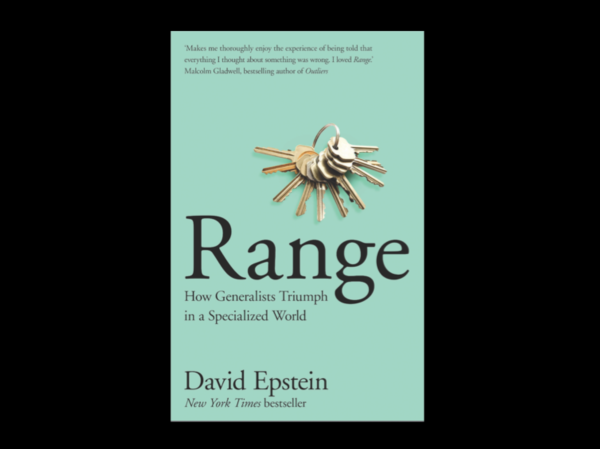Tom Cheesewright learns the benefits of not knowing what you want to be when you grow up
In my work as a futurist, the question I am most frequently asked is this: “What should I teach my children to give them the best chance of success in tomorrow’s world?”
In Range: How Generalists Triumph in a Specialized World, David Epstein encourages us to consider not what we teach, but how we teach it. Perhaps this is the more valuable question. He argues that we have become enthralled to the idea that success is best bred through early specialization. The two tigers – Tiger Woods and the ‘tiger mom’ – have become powerful stories about how a sustained and narrow focus on particular disciplines can give our children a head start. But through collected research and examples from education, music, business and sport, Epstein shows that people with a broad education often outperform their specialist counterparts over the long term.
It is an idea that extends well into our careers: the genesis of the book was in Epstein’s conversations with highly educated military veterans nervous about starting new careers later in life. Their fear showed Epstein how powerful the “cult of the head start” had become, and he sought evidence to show them their experience might be an asset, not a handicap.
Epstein makes a compelling argument. I found that I needed little convincing. Most of us have not pursued our lives with a singular focus. Our careers have meandered. That we may, accidentally or intuitively, actually have been pursuing the best path to long-term success is a seductive idea. The envy we may have felt of the early success of our hard-charging peers can turn to smugness about our prospects of overtaking them in time – and we will have had a broader, more enjoyable experience along the way.
The thesis is equally seductive for parents. Most of us take a rather haphazard approach to our children’s education. Few of us are tiger parents, driving our children through regimented tuition in a narrow selection of skills. We let them pursue their passions, which wax and wane. We might cajole them into getting their homework done, but we are likely to let them spend more time playing, reading, or just crashing in front of the TV. It turns out we may be building more rounded, successful future humans.
Lessons in learning
This isn’t to say that Range is without a call to action. In fact, it has reinforced two of my beliefs about the future of education and careers, and reinvigorated my desire to tackle these issues.
The first is about the nature of the skills we need for success, today and tomorrow. Many of us already consider ourselves generalists. Success often requires a solid mix of skills in research, analysis and communication, as well as many more specific technical strengths. But being a successful generalist really requires the ability to keep learning, maintaining openness of mind and adapting to new, complex and uncertain scenarios.
Epstein points to the tale of the hedgehogs and the foxes, two classes of political analyst named by Philip Tetlock in Superforecasting after the tale by Isaiah Berlin. Hedgehogs know one big thing: they pursue a single idea or ideology to great depth and believe that defines the world. Foxes know lots of little things: they can hold multiple ideas in their heads and recognize that all of them may be true. Foxes offered much more accurate predictions of the collapse of the Soviet Union because they could recognize the impact of multiple influences, rather than having their view defined by a single philosophy.
The second point is about how we learn. Epstein confirms what many parents intuitively believe: intensive ‘teaching to the test’ leaves children with lower long-term recall, and is less valuable in broad-based skills development than more open and exploratory learning. Concentrated cramming leads only to short-term success. Inquiry, exploration, ambiguity, variety, the interleaving of subjects and periods of rest, reflection, and play, are much more effective at building deep knowledge and the skills to recall and apply what has been learned. If, like me, you believe school education is over-prescribed and its testing schedule excessively rigorous, Range will give you plenty of ammunition to lobby for change. We should also remember to adopt a more exploratory style in our own homes to structure our continued learning.
Reassurance and ammunition
Like the path I now know may lead to the most successful careers, Range is a little meandering. Epstein spends a long time tackling each facet of his argument, repeating and returning to each argument with new evidence and different nuances. The experience is enjoyable, but occasionally I found myself craving a more condensed argument and a sharp summary.
Nonetheless, Range is an important read. If you find yourself in your twenties, or even your fifties, not knowing what you want to be ‘when you grow up’, then read Range for reassurance. If you’re just starting out, read it for insights about what will be the critical skills for your career: we need breadth of experience, comfort with ambiguity, and an openness to continued learning. And if you’re a parent, read Range and relax a little about not being a tiger. We best prepare for the future by exploring a range of interests.

